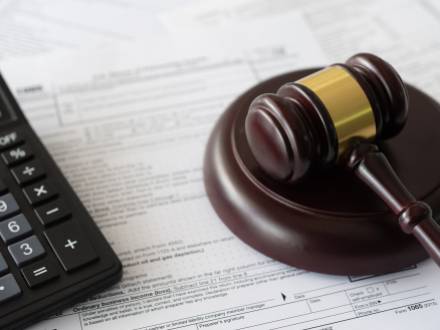IRS Makes Changes to Criminal Voluntary Disclosure Practice
 U.S. taxpayers may face serious concerns in cases where they have not disclosed income to the IRS or have not paid taxes as required. While some taxpayers may face civil penalties related to the non-payment of taxes, others may face criminal prosecution. Because of the consequences that may apply, some taxpayers may be hesitant to come forward, report undisclosed information to the IRS, and pay the taxes, penalties, and interest that they owe.
U.S. taxpayers may face serious concerns in cases where they have not disclosed income to the IRS or have not paid taxes as required. While some taxpayers may face civil penalties related to the non-payment of taxes, others may face criminal prosecution. Because of the consequences that may apply, some taxpayers may be hesitant to come forward, report undisclosed information to the IRS, and pay the taxes, penalties, and interest that they owe.
To address this issue, the IRS has created its Criminal Voluntary Disclosure Practice (VDP). This program allows taxpayers voluntarily to disclose information and correct outstanding issues while minimizing the potential penalties that may apply. However, some of the features of the VDP may have kept some taxpayers from using this program due to concerns that they could potentially still face criminal prosecution. To address this issue, the IRS has made some changes to the VDP that are meant to ease taxpayers’ concerns.
While the VDP may be a good option for taxpayers in some situations, legal representation can be crucial to ensure that the right steps are taken when disclosing information to the IRS. An attorney with an understanding of the tax laws that apply in these cases can help taxpayers protect their rights while minimizing the potential penalties.
Removal of the "Willfulness" Checkbox
The IRS revamped the VDP in 2018, and some of the changes it made were criticized due to the way they may have made people less likely to use the program. Specifically, Form 14457, the application and preclearance request for the VDP, required taxpayers to check a box stating, under the penalty of perjury, that their noncompliance with the IRS’s requirements was willful. This raised concerns among taxpayers that by submitting an application, they would be effectively admitting to criminal activity under oath.
Since there is no guarantee that a person who submitted an application would be accepted into the VDP, this checkbox could potentially expose taxpayers to criminal prosecution. For taxpayers who were unsure about whether they had willfully failed to disclose income or pay taxes, checking the box could possibly be considered perjury, but those who were unwilling to make this admission would not be able to participate in the program. To address this issue, the IRS has revised Form 14457 as of July 2025 and removed the "willfulness" checkbox.
Other Concerns With the VDP
While the National Taxpayer Advocate (NTA) has praised the decision to remove the "willfulness" checkbox, they have identified a few other issues that may affect whether taxpayers are willing to participate in the VDP. Currently, the program assesses a 75 percent civil fraud penalty for the year in which a taxpayer has the highest tax liability. Willful FBAR penalties may also be assessed in cases where taxpayers have failed to disclose foreign assets or income. Due to the severity of these penalties, taxpayers may be discouraged from participating and becoming compliant with their tax obligations.
In addition, the VDP does not allow taxpayers to appeal unfavorable decisions. Participation in the program will require taxpayers to agree to the assessment of taxes, penalties, and interest as determined by the IRS. All amounts owed to the IRS must be paid in full, with limited options for paying these amounts through installment agreements. In cases where taxpayers disagree with the IRS’s assessments or are unable to pay in full, they may have no other option but to withdraw from the VDP, which could lead to additional penalties or criminal prosecution.
Contact Our San Jose, CA Tax Attorney
While the Voluntary Disclosure Practice may be an attractive option for taxpayers who have failed to meet their requirements to disclose information or pay taxes, representation from an attorney can be crucial in these situations. At John D. Teter Law Offices, our San Jose tax lawyer can help determine whether the VDP is the best option or whether other steps can be taken to report information to the IRS and become compliant. We can work with taxpayers to help minimize the penalties that may apply, prevent criminal prosecution, and address other tax-related matters. To learn more about how we can assist with these cases, contact us at 408-866-1810 and arrange a consultation.









